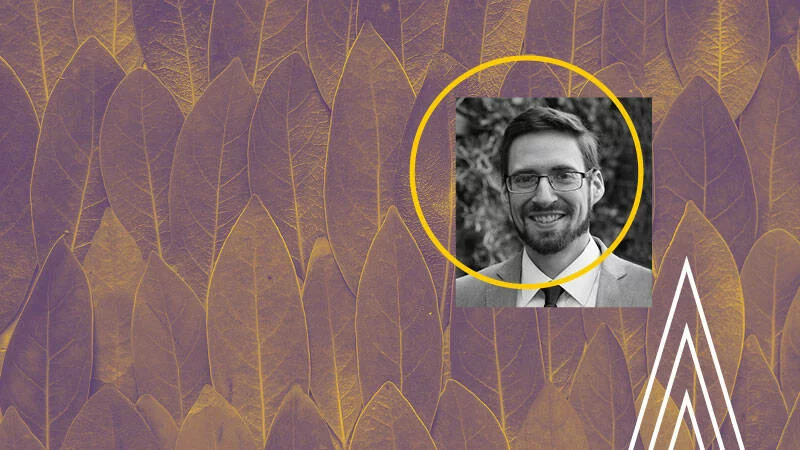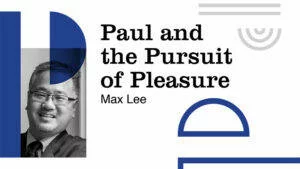“We must learn to acknowledge that the creation is full of mystery; we will never entirely understand it,” Wendell Berry exhorted us 50 years ago.
“We must abandon arrogance and stand in awe. We must recover the sense of the majesty of creation, and the ability to be worshipful in its presence.”From his essay, “A Native Hill,” which is available in multiple collections. Since writing this, he has lived it and helped others do the same—yet it seems that his exhortation might remain today even more appropriate than it was back then. Have we yet learned to abandon our arrogance and stand in awe? Have we allowed the majesty of creation to draw us to worship?
“I can be blind to the wonders all around me,” incoming Henry Fellow Alex Stewart confesses, “but I want to see!” This, in short, is the aim of this post-doctoral scholar’s ambitions, both academic and personal, for his tenure as a 2020–2021 Resident Fellow. His project, Wired for Wonder: Natural Awe in the Sciences and Scriptures, is an interdisciplinary examination of natural awe, incorporating scientific and biblical research. Stewart, an alumnus of Trinity, will return to Deerfield from his PhD program at McMaster Divinity College to join others at the Creation Project in thinking about the goodness of creation. No matter how much we have or have not found ourselves in awe of the natural world, Stewart is convinced there is more to see. “I find the doctrine of creation to be the most meaningful, challenging, hopeful, and inexhaustible source of reflection and living that we have as Christians.” Natural awe in particular is worth more reflection as it helps us recover a sense of the majesty of creation and its Creator, increasingly important as we seemingly find ourselves haunted by the absence of this sense.
The Book of Nature, The Book of Scripture
Stewart’s project has multiple disciplines in its scope, but it is tied to a central thesis. He believes that “neuroscience, social psychology, and biblical theology converge on this truth: awe changes people for the better.” He will set out to demonstrate this claim as he examines science and Scripture in relation to natural awe. “From the sciences, I will argue that we are ‘wired for wonder,’ awed at powerful or vast phenomena, including natural phenomena . . . From the biblical texts, I will argue that awe-inspiring depictions of nature lead the audiences to reverence and other types of moral growth.” The twin books of nature and Scripture thus converge in this project examining what awe teaches us about our place in the world. Stewart has engaged in interdisciplinary scholarship before, as his dissertation incorporated neuroscience, social psychology and creation theology. He has also published work concerning ecological imagery in the Bible and studies of ethical emotions in Scripture.Alexander C. Stewart, “Heaven Has No Sorrow That Earth Cannot Feel: The Ethics of Empathy and Ecological Suffering in the Old Testament,”(Canadian Theological Review 2015).
What are goosebumps? Why do our jaws drop? What is it about experiences of awe that make it seem like time is moving in slow motion? Stewart will be asking these questions and others like them during his time as a Henry Fellow, with special attention given to neuroscience and social psychology. As an Old Testament scholar, Stewart is keenly interested in the wonder-inducing passages in Scripture: its invocation of thunder and earthquakes, Job’s self-diminishing response to extraordinary natural phenomena, and how might the Psalmist help us think of awe? Stewart will draw on his expertise as he considers biblical case-studies like these. Although he is trained in Old Testament, he sees his work “more broadly within the fields of biblical studies and ecological ethics for the sake of God’s kingdom. I want my teaching and research to shape followers of Jesus who are ‘awed to heaven, rooted in earth.’”Walter Brueggemann, Awed to Heaven, Rooted in Earth: The Prayers of Walter Brueggemann (Minneapolis, MN: Fortress, 2002). The intended result of the project is a book-length manuscript, a blend of biblical theology, neuroscience, and social psychology. He believes that the book will be of interest to academics and other Christian leaders who are curious about how awe can improve our schools, churches, and outdoor programs.
Creation and Ethics
The study of awe in the natural and social sciences was reignited in 2003, after the appearance of a seminal article which has opened up many more questions to be explored.D. J. Keltner and J. Haidt, “Approaching Awe, a Moral, Spiritual, and Aesthetic Emotion,” Cognition & Emotion 17, no. 2 (2003): 297–314; see also Summer Allen, “The Science of Awe” (A white paper prepared for the John Templeton Foundation, Greater Good Science Center at the University of California, Berkeley, September 2018), 4. Stewart’s line of inquiry will focus on changes in human identity and activity that come in response to experiences of awe, as evidence suggests that such experiences lead to “transformed outlooks with increased prosocial behavior,” he writes. “Overall, my research will explain how nature-based awe shapes us ethically and suggest some ways Christians might cultivate awe through education, church liturgy, and outdoor experiences.” Creation and ethics are tied together; seeing the world rightly, awed at its splendor, will help us live worshipfully, as creatures before our Creator.
Stewart believes that there are two common myths Christians must resist in their thinking about natural awe. The first is that “experiences of awe are merely optional in life, perhaps a luxury for wide-eyed children or those who travel to exotic places.” The second myth is that “marveling at the natural world—and crediting God for it—is needless in our time of scientific progress, because more knowledge equals more mastery and less mystery.” Though these are prevalent superstitions felt in Western culture, we instead can affirm that we are all ‘wired for wonder.’ “It actually enhances our social, spiritual, scientific, and ethical development.” Against these two myths—that wonder is either merely an optional component of human flourishing or an obsolete relic of a pre-scientific age—Stewart intends to show that a disposition of wonder is an integral part of our common humanity.
Berry’s exhortation stands true: we indeed must acknowledge that creation is full of mystery. This is, of course, something of the judgment that Scripture makes when it tells us that the heavens declare the glory of God. Perceived vastness can result in increased humility; people are more generous with their time after an experience of natural awe. In short, awe can change us for the better. And Stewart’s project itself has such potential. Perhaps it will let us abandon our arrogance and stand in awe. Perhaps it will help us be worshipful in the presence of God’s good creation. Perhaps it will teach us once again to wonder, to rest in the grace of the world, and be free.From the last two lines of Wendell Berry’s poem, “The Peace of Wild Things.”
2020–2021 Henry Resident Fellows
 |
Joshua W. Jipp Associate Professor of New Testament, Trinity Evangelical Divinity School Project: “Paul and the Pursuit of Happiness” |
 |
Kevin Kinghorn Professor of Philosophy and Religion, Asbury Theological Seminary Project: “Rethinking Our Moral Intuitions” |
 |
Max Lee Associate Professor of New Testament, North Park Theological Seminary Project: “Natural Desire as a Moral Index of What Is Good” |
 |
Alexander C. Stewart PhD, McMaster Divinity College Project: “Wired for Wonder: Natural Awe in the Sciences and Scriptures” |







Comments
Be the first one to make a comment!